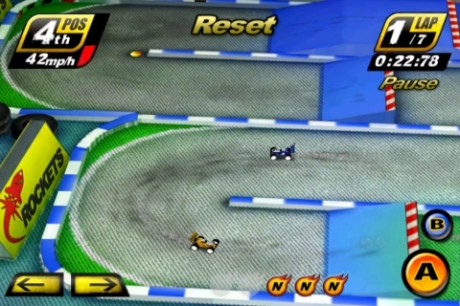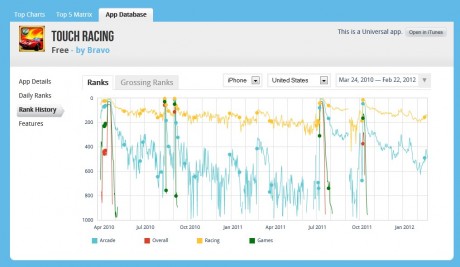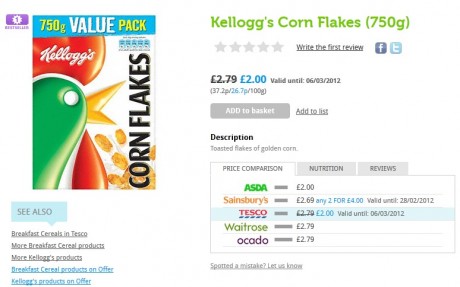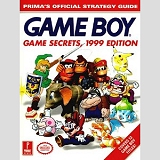The dark side of digital distribution
As a concept, digital distribution – particularly of videogames – is a wonderful thing. It should, and sometimes does, reduce prices dramatically by cutting out the need for physical manufacture, stock inventory, distribution and retail middleman. (Which in turn can also make niche genres economically viable.)
It can be, and usually is, much more convenient too – there's no need to mess around with noisy, slow-loading discs or worry about getting them scratched or losing them if all your content is right there on an instantly-accessible hard drive.
The only problem with digital is that it cedes control of your software library (and therefore all the money you've invested in it) to business, and business is evil.
Many of the facts supporting that assertion are well demonstrated. In the PC market, the spread of ludicrous DRM that won't let you play even single-player campaigns without being connected to the internet. On mainstream consoles, it's things like Sony's insane PSN download pricing structure, often charging vastly more than shop prices for a game that's measurably less valuable than its physical counterpart, because you can't resell it when you're finished with it.
More recently, though, and primarily on Apple's iTunes Store, we've started to see a more insidious hazard of trusting companies with your money – outright fraud.
Some of it is relatively crude and obviously underhand – the fake Pokemon game that recently shot to the top of the charts, or the many cynical attempts to fool users with soundalike app titles. But even the most respected publishers aren't above openly stealing your money.
The UK's most famous left-wing "quality" newspaper The Guardian, for example, released an app just over two years ago which sold for a one-off payment of £2.39 (which is fairly premium-priced in iOS terms). Many thousands of people bought it in good faith, but when the Guardian decided that their one-off payment wasn't enough, it simply discontinued the app and brought out a new subscription-based one. The original was first updated to force users through a nag screen for the new subscription service every time they loaded it, and then stopped working altogether with iOS 5.
The interesting thing all the above scams have in common is that according to Apple you have no right to any sort of refund. Write in to ask for your money back – since the item you were sold was not fit for purpose – and you'll get a reply including this line:
"According to the iTunes Store Terms of Sale, all purchases made on the iTunes Store are ineligible for refund. This policy matches Apple's refund policies and provides protection for copyrighted materials."
Alert UK readers will be aware that this is a clear breach of trading law – under Section 14 of the Sale Of Goods Act, any item sold by anyone anywhere that is unsuitable for its advertised function MUST be repaired, replaced or refunded – and Apple's terms and conditions are not enforceable where they conflict with statutory consumer rights.
But even that's not the App Store's most insidious form of robbery.
Just a few months after the first Guardian app came out, Spanish developer Bravo launched an acclaimed racing game at the same high-end price point. Touch Racing Nitro was a classic retro-style circuit racer with an innovative control system, and was well received in the press. Despite the (in iOS terms) high price it initially did reasonably well, making the top 10 of the Arcade chart, peaking at No.4 in the Racing chart and squeezing narrowly into the Overall top 50.
Bravo tried both cutting the price (to £1.19) and increasing it (to £4.99), making little difference to its chart placing, and five months after release tried a promotional free weekend (repeated a few weeks later) which saw Touch Racing rocket into the Overall top 10. Over the next 10 months the developer tried four different price points, again making very little difference to the game's chart position, before an extended free promo followed by a longer-term price cut to 69p boosted it up the rankings again.
Last October the game went free again, and stayed that way for four months. Then the sting came along. About a week ago (at time of writing), the game received an "update", which came with just four words of description – "Now Touch Racing Free!" As the game was already free, users could have been forgiven for thinking this wasn't much of a change. But in fact, the app thousands of them had paid up to £5 for had effectively just been stolen.
Two of the game's three racing modes were now locked away behind IAP paywalls, and the entire game was disfigured with ruinous in-game advertising, which required yet another payment to remove. A barrage of one-star reviews resulted on iTunes, and WoSland wrote a short email to Bravo politely expressing its disapproval:
"How do you justify stealing large sections of a game users have already paid for? If you want to make a free version of Touch Racing with ads and IAP that's fine, but replacing the paid version with it is a disgrace. Some of us have already paid for that content and do not appreciate it being removed by an 'update' which also spews ads all over the place. As a result I – and I suspect many more people – will never buy another of your apps, which doesn't seem a smart business move."
A day later, we got this reply from Ana Hidalgo, Bravo's "Social Media Manager":
"Hi!
Thanks for contacting us.
I'm really sorry about that. I knew that this could happen. The team had no option but to do that.
We're not trying to make money from people who have already bought the game like you did. It is not an excuse, but only 4% of the 2MM downloads have been paid ones. Unfortunately, Apple doesn't provide with any methods to know when an user has paid or not for an app. We just want to monetize the game from that 96% who are enjoying the game for free. Our goal is to monetize them via advertisement. We understand that this is annoying for the players that have paid for it.
Yes, maybe we could have released a LITE version, but if we release a new free version, we couldn't monetize near 2 MM free downloads we already have. And why we have 96% free downloads? A very bad old decision.. We've begun a new phase at Bravo Games and we definitely need some revenues from those downloads.
At the moment all our efforts are focused in new projects. When we finish those projects, we'll evaluate the possibility of adding new content to previous games like Touch Racing Nitro.
I regret to hear that you never buy another of our apps."
Consumers are sometimes accused of a "sense of entitlement" by peevish developers and industry-serving "journalists". (So don't hold your breath waiting to read a feature on this subject on any of the popular iOS gaming websites.) But the sense of entitlement that radiates from Sra. Hidalgo's letter fairly took our breath away. It admits that the "bad mistake" of making the game free for an extended period was Bravo's rather than anyone else's, but that it's innocent users – who quite understandably accepted an attractive free offer – who are to be punished, and paying customers who are going to be caught in the crossfire.
Let's assume that "2MM" is the Spanish way of writing "2 million". If 96% of those were free downloads, that means that a whopping 80,000 people who paid money for Touch Racing have just been screwed. If we assume an arbitrary but reasonable average price of £1.19 (the second-lowest App Store price tier at the time most of the sales were made, though the app has cost at least twice that much for most of its life), that's just short of £100,000 that Bravo have extracted from consumers for what is in effect a "Lite" demo version of the game.
Imagine if the rest of the world worked this way. Imagine you went to Tesco and bought three boxes of Corn Flakes on a "three-for-two" offer, only for a Tesco employee to turn up at your house one day a month later and confiscate not only the "free" box but also the second one that you'd actually paid for. There'd be riots, or at the very least a long court backlog of assault cases and battered workers. Yet apparently, for videogames it's the dynamic economic model of the future.
While we can't think offhand of a more heinous or blatant case, Touch Racing is far from a unique one. (The first well-documented iOS example was probably Paper Toss, originally a free game but which was downgraded with ads just before it started to add content.) WoSland is a pretty wily consumer, and currently has eight apps sitting in its iPhone's "update" queue which are never going to get those updates, because the "update" in question is in fact a downgrade, removing functionality and/or adding ads. We've deleted many others altogether for the same reason.
(Apple, with their trademark user hostility, makes rejecting updates an incredibly tedious process, because there's no way of permanently or even temporarily dismissing an update, which means that if you've got even a single unwanted one you can never use the "Update All" button and must instead apply every single genuine update individually, forever.)
And of course, iOS isn't the only place users can be defrauded in this way. Indeed, on consoles it's even worse, because at least you CAN avoid unwanted downgrades on iOS – most games on Xbox 360 or PS3 won't let you play them at all if you decline to apply an update. You might as well just send Microsoft and Sony your credit card numbers and invite them and their third-party publishers to take some of your money whenever they feel like it. (Indeed, you may well have done so already, albeit for slightly different reasons.)
The world of digital distribution is one of infinite promise. But as so often happens as soon as greedy businessmen get their hands on something, that promise is being regularly broken. With every passing day, corporations are reducing, or planning to reduce, consumer rights further and further, ideally to zero. Be careful who you put your trust in, viewers.












It seems to me that the problem could easily be sorted if users were allowed to not only permanently reject an update easily, but also revert back to an old version, i.e. the version they paid for and actually wanted.
Having said that, evil companies would easily find a way around this by using DRM to prevent old version from working. At the end of the day it's only the courts that can solve this, but who wants to enter that expensive quagmire?
I had a related problem with Steam. RAGE was unplayable for me, and many others, so I attempted to get a refund, quoting the Sale of Goods Act and a few other bits of legislation, but I got nowhere. I believe they can get away with it, as long as no-one takes them to court to prove otherwise, because they are selling software as services not goods, so they have an entirely different set of legal rules to abide by.
FAOTD-recommended A Moon for the Sky did much the same thing.
An update crippled the free-play mode so that it would no longer generate in-app currency, effectively forcing purchases to unlock content, and on top of that, added ads. Still charging $2 for the game, too.
Admittedly, since I picked it up for free all I lost was my time – an abortive attempt to revert to the old version lost my save game data so I gave up totally.
Complaints to the devs and the publishers (Bulkypix, who I think are a fairly big name in i-thing games) garnered no response.
The Touch Racing situation seems crazy. Unless the developers were incredibly negligent they should be able to figure out if you paid for the game, or to ask for reasonable proof (e.g. your iTunes receipt) and then offer a gift of the full content or a full refund.
I can see why they'd want to monetise the existing version of the game, but surely if you have to break something for even a small group of users you should anticipate having a process in place to reimburse those who explicitly ask.
The point is, if they wanted to monetize the game they shouldn't have made it free. If they now regard that as a mistake, tough. Learn your lesson and don't make the same mistake again.
@Rob Sharp
You need to write to them explaining that the game is not fit for purpose pursuant to s.14 of the Sale of Good Act 1979 and that you want your money back. If they refuse then threaten to issue proceedings in the county court.
If it ever comes down to you issuing then you would almost certainly obtain summary judgment (meaning that the case wouldn't even progress to trial). Whether you can actually be bothered to issue a claim is, I guess, a question that only you can answer.
Digital goods are still goods, Shouldn’t trade laws apply?
They should and they do.
Why do you morons buy apps? Hilarious!
PS. Why do you need my name to post something? So fucking STUPID
Dear Mr. namerequired,
Had you not thought of entering a pseudonym, such as "Captain Dickslice"?
Yours provocatively,
Richard Slice
Sony got away with it. Why shouldn't these guys?
Interestingly, I’ve received refunds on iOS apps in the past.
Also, you can click “update all” in iTunes and then delete the any downloads you don’t want from the queue. Not an ideal solution, but workable.
Great article! I actually am in the midst of a big series on TouchGen right now that addresses this, if you're interested in what I have to say, feel free to check it out: http://www.touchgen.net/a-freemium-manefesto-part-1
I'm hoping journalists like us can make a difference, but sadly consumers are proving this method works by continuing to give up their money.
and then you make me register to view the pics of charts close up
‘most games on Xbox 360 or PS3 won’t let you play them at all if you decline to apply an update.’
No. If you refuse to install a PS3 game update, you can continue playing, you just wont get access to online multi?player. Which makes sense as patches for MP games involve game?changing behaviour, tweaks to things, added content and bug fixes.
The rest of the post is spot on.
I much prefer to have a game that you buy, own and play. In-app purchases have already lead to games specifically being designed to get you interested, then ramping up the difficulty to a point that either ruins the game or forces you to spend some money. My 2 latest gripes, Army of Darkness and Paladog are both really good games, but the difficulty curve suddenly spikes. You can either grind and level up which would take forever, or spend some money. But if you do spend money, you can spend a little too much and end up with such a powerful character that the game becomes stupendously easy and it's ruined again.
Surely they could just look at their list of paid buyers and give just those people free "upgrades" that they're trying to sell to those who got it free.
Of course they won't because their evil money grubbing scum.
old versions of iOS games are stored in your hard drive, just dig in your iTunes folder. iTunes only shows the newest by default. Delete the newest version and resync. the old version will be back, fully functional, as long as it does not require something from the server that will no longer be provided.
Army Of Darkness Defense? It's definitely possible to beat that without any IAP or really tiresome amounts of grinding. I really enjoyed it all the way to the end.
One day, our many Coca-Cola Academies will teach the truth. In a Kellogg's "they're great!" sponsored The History of Your Bright Future lesson, they will teach the truth.
And this will be the truth: "consumer rights" are an oxymoron. Consumers wait to consume what they are given. They are passive. Who is it that is, instead, active? The wise, benevolent all-fathers. The masters of industry. They shape our dreams, carefully, wisely, using all the branches of consumer science. How the teacher will smirk when the idea of "consumer rights" comes up in class!
The only question is this: how many years?
Apple have got to totally clamp down on developers doing this. A title should not be allowed to have ads added or content removed as an update. Period.
I am sick and fucking tired of hearing about "gamer entitlement". It's a buzzword (phrase) picked up by paid off "journalists" and then spewed by every mouthbreather with a keyboard on reddit and other websites.
Your regulators should grow a backbone and go after these abuses. Taiwan's FTC went after Apple and Android Market's no refund policies. Apple backed down and changed the policy to follow Taiwan law, showing that they are capable of doing this. Google decided to fight it and shut down the Market for Taiwan which suck for users, but they also recently lost their appeal for failing to comply with the local law.
In the end though, I think it will be up to Apple to put some sort of policy in place that publishers cannot substantially degrade or reduce functionality in updates of a paid product. Ultimately they will be the ones to suffer more than any individual publishers if people grow to distrust apps and stop buying.
‘Let’s assume that “2MM” is the Spanish way of writing “2 million”‘
Pretty good article other than this, MM is a pretty standard way of saying Million. Tim Schafer even used it just recently when talking about how many millions his various game budgets were.
Ah, good, needed a few apps to delete to make some soace.. Touch racing duly deleted
How about a thread over on the forum to name and shame developers who have removed content / features or added ads in an update.
Some good points. I had a go at digital distribution myself last month – http://gamingtheory.wordpress.com/2012/01/09/why-games-publishers-want-you-to-want-digital-distribution/
The trouble is, people seem to want digital distribution. A lot of people I've spoken to trust games companies and are just happy to be able to get hold of games quickly.
It's very refreshing to hear a writer not accuse PC gamers of self entitlement for once.
This is one of the reasons I cancelled my Diablo 3 preorder, every month that went by since my 2010 preorder, it seemed like Blizzard were taking away more and more features.
Any company that tries to defraud me will drive me towards piracy. It doesn't matter if I have a sense of entitlement, because as a developer you have no right to my money unless I decide I want to pay for something that is worth it, and once I do, a developer cannot take it away. If they try to, I will pirate it and never spend another penny on their products again. Ubisoft, Bioware, Blizzard, all three have burned me with their dumbing down of game genres, always online DRM making offline play impossible without being a pirate who uses cracks, or simply taking features away and forcing you to pay more and more for tiny things that should be included in the overall package.
An excellent article.
I just wanted to pick a nit and say that digital distribution can be convenient AND fair at the same time. There’s nothing inherent in DD that demands such obnoxious behavior as described above , it is now simply easier for companies to assert more control over their product, to good (shutting down malware from afar) and evil (patching games out of usefulness).
One thing I will say, the "PS3 and 360 games can't be played without an update" is a bit of a fallacy. Ultimately if you ignore the updates, it won't affect a single player game, you simply won't get the benefit of the fixes in the update. If it's multiplayer, yes, the game will no longer work but that isn't some devious scheme, it is game development. If one player is running build 1.0 and another is on 1.1, it is very rare for a game to be backwards compatible, and costs more money in the development process to make it that way. Ultimately when an update comes through, it is to fix or update elements of the title that are required. Stating that this is a bad thing is to totally misunderstand the game development process.
Other than that, though? A fairly good article.
@Mintsy: It would be a problem if a 360/PSN update removed content from the multiplayer element of a game, which is what's happening on iOS. I'm not aware of anything like that happening on the 360, can't really comment on PSN these days.
But yes, I don't have (or at least haven't yet had) a problem with 360 updates and I wouldn't lump them in with this iOS nonsense, which is appalling – unless I get a valued personal recommendation, I simply stay away from iOS games these days, because navigating the store is inevitably a depressing experience.
I used to have a hell of a lot of problems with PS3 updates, because, you know, there are only 24 hours in the day.
All right, as a fan of movies let me think about it for a while..
So I bought online Avatar. After several weeks of watching the movie, it updates itself and since then I got missing 30 minutes of the movie and commercial break every 10 minutes. On my bought, until-update perfectly ok, already several times watched film.
Do I get it right? This is SICK, WRONG and UNACEPTABLE.
Stu,
Have they fixed this in the latest version (1.9)?
And has Arcade Bowling been fixed yet?